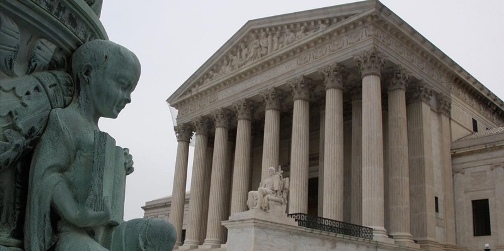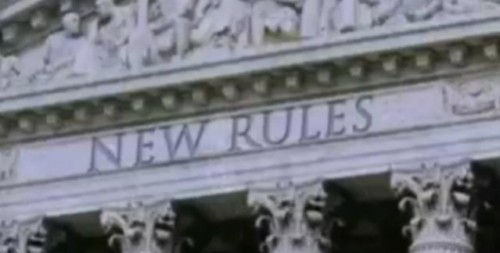ACA International Attends Republican Attorneys General Summer Meeting
http://www.insidearm.com/daily/debt-collection-news/debt-collection/aca-attends-republican-attorneys-general-summer-meeting/
http://www.insidearm.com/feed
insideARM

Burr & Forman Associate Matthew Devine, of the firm’s Financial Services Litigation Practice Group, also contributed to this post.
Burr & Forman LLP recently secured an important holding on an issue of first impression regarding the running of the statute of limitations in the FDCPA and FCCPA context. More specifically, in Gregory Crossman v. Asset Acceptance, LLC, (5:14-cv-00115-WTH-PRL), Judge William Terrell Hodges, sitting in a Middle District of Florida trial court, held that inaction cannot form the basis of a continuing violations theory under the FDCPA or Florida Consumer Collection Practices Act, the delayed discovery doctrine does not apply to same, and the recording of a satisfaction of judgment, albeit untimely, renders a § 701.04, Florida Statutes claim moot.
Plaintiff Gregory Crossman filed a two-count Complaint against Defendant Asset Acceptance, LLC alleging violations of the Fair Debt Collection Practices Act, 15 U.S.C. § 1692 et seq (FDCPA) and the Florida Consumer Collection Practices Act, §§ 559.55 – 559.785, Fla. Stat. (FCCPA) based on Asset Acceptance’s alleged failure to record a satisfaction of a state court judgment entered in February 2007 after Crossman claimed that he paid the judgment in full in March 2007. Aside from Asset’s alleged failure to timely file a satisfaction of judgment, the plaintiff did not allege any other affirmative acts, or failures to act, that would run afoul of the FCCPA and FDCPA. Crossman claimed that he had not discovered that the judgment had not been satisfied until August 2013, but that he had been denied credit for various loans in the interim. After bringing this to Asset Acceptance’s attention in October 2013, the company promptly recorded a satisfaction of the judgment.
After defendant moved to dismiss plaintiff’s complaint on statute of limitations grounds, Crossman filed an Amended Complaint adding a third count for violation of § 701.04, Fla. Stat., which requires a judgment creditor to record a satisfaction within sixty days of receipt of payment in full of same. Asset Acceptance thereafter moved to dismiss the Amended Complaint arguing that all counts were barred by the statute of limitations, and that the 701.04 claim was moot as the company had satisfied the judgment.
Asset Accetance argued that any alleged violation of the FDCPA or FDCPA occurred in May 2007, the day after the sixty-day period under § 701.04 expired, and constituted the relevant starting point for the limitations period. In response, the plaintiff contended that the Court should apply a continuing violations theory to its claims and hold that each day that the defendant failed to file a satisfaction of judgment damaged Crossman and constituted a new violation of the FDCPA and FCCPA. Alternatively, Crossmanr argued that the delayed discovery rule should apply to resuscitate his claims, or that the Court should hold that Asset Acceptance’s recording of the satisfaction in 2013 operated to reset the statute of limitations periods.
Recognizing that the question of when a statute of limitations begins to run under the FDCPA and FCCPA when a debt collector fails to file a satisfaction of judgment is an issue of first impression in the entire federal court system, Judge Hodges relied upon analogous decisions that held that the failure to act, i.e. inaction or an omission, cannot constitute the basis of a continuing violations theory.
Judge Hodges further noted that applying a continuing violations theory based solely on a failure to act would render the FDCPA and FCCPA’s statutes of limitations null as the limitations period could stretch on indefinitely. Here, because Crossman alleged no affirmative acts by Asset Acceptance to collect on the judgment, the statute of limitations period began to ran on the first day following the sixty day period to satisfy the judgment under §701.04, and therefore expired prior to plaintiff’s suit in late 2013.
Next, Judge Hodges pointed out that the delayed discovery rule does not apply to the FDCPA or FCCPA context, and the limitations period begins to run on the date of the alleged violation, not on the date when it was discovered.
Finally, Judge Hodges held that the recording of the satisfaction did not reset the limitations period because it was part of the 2005 litigation and was not a separate attempt to collect a debt. As for Crossman’s § 701.04 claim, the Court agreed with Asset Acceptance that it had been rendered moot by the filing of the satisfaction and, nonetheless, was similarly subject to a statute of limitations period that had already expired.
Ultimately, Judge Hodges held that the plaintiff’s claims as pleaded were all barred by the statute of limitations and were, therefore, subject to dismissal. Because amendments would be futile with respect to the FCCPA and § 701.04 claims, Judge Hodges dismissed them with prejudice. With respect to the FDCPA claim, because Crossman had alleged that Asset Acceptance had “continu[ed] to dun him,” in the Amended Complaint, Judge Hodges granted CRossman leave to further amend his complaint to allege any such conduct. Nonetheless, Judge Hodges cautioned him to be wary of Fed. R. Civ. P. 11 in doing so.
This holding constitutes an important development in the debt collection realm and sets a good precedent for analysis of the application of statutes of limitations to inaction or omissions on the part of debt collectors.
Frank Springfield is a partner in Burr & Forman’s Financial Services section, where his practice concentrates on consumer financial services litigation. Frank’s representation of clients in the financial services industry includes the defense of both individual and class/mass actions, ranging from state common law and statutory claims, including claims for fraud and identity theft, to claims for alleged violations of federal statutes, including the Fair Credit Reporting Act, the Fair and Accurate Credit Transactions Act, the Fair Debt Collection Practices Act, the Real Estate Settlement Procedures Act, the Telephone Consumer Protection Act, and the Truth In Lending Act.












